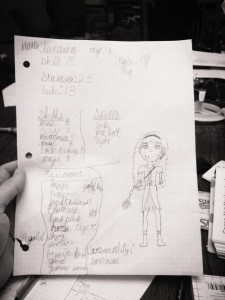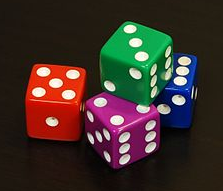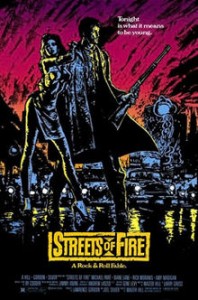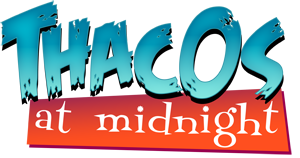
It’s Christmas, 1979.
I’m five years old, Pierre Trudeau is prime minister (again). Tim Hortons doughnuts are 50 per cent bigger than nowadays, but 500 per cent more likely to taste like an ash tray. Wayne and Shuster are on TV, and my teenage cousin is playing Advanced Dungeons and Dragons.
I spent that Christmas in Brockville, visiting my grandparents and aunts and uncles on my dad’s side. I’m allergic to cigarette smoke and cats, but I don’t know it yet. The house has both smokes and cats in ample supply, leading to a frantic late night E.R. visit when my left eye swelled up and turned bright red. That’s pretty much all I remember about that trip, that, and the fact that my cousin was playing a strange game. Hours before bedtime (when my eye was still “just a little itchy”), there was a break in the game. I snuck into the side room where my cousin played, to investigate his strange game of toy soldiers with swords.
The room where they played was littered with miniatures and hand-built terrain, which did double duty as landscape for my cousin’s collection of 1:35 military models. I couldn’t read yet, but I was fascinated with one of the books. It depicted strange and wonderful creatures locked in combat, both above and below ground.
I was in high school before I saw that book again, and realized it was the first edition of the AD&D Monster Manual.
***
It’s summer, 1983.

I’m nine years old. I know how to read and I’m reading voraciously. Fantasy, science-fiction and science-fact, military history, the Bible, trashy creation science books, equally lurid parapsychology paperbacks – anything with blood and death or magic and mystery in it. I am devoutly religious to the point of paranoia, convinced of the physical existence of demons who imperil my immortal soul.
The Cold War is in its last hysterical spasm. Nuclear war by 1990, say all the grown-ups, right up to the U.S. president. Nuclear war, or the Anti-Christ, or both. It’s one of the hottest summers on record. We don’t have air conditioning, or a television, or a car. I spend a lot of time reading in a blazing hot living room.
A few times a month, I navigate to the library on my bike through a scar of undeveloped land that cuts through several neighbourhoods. We call it the Pipeline. In 1983 it’s a muddy dumping ground, haunted by angry dogs and bullies from the wrong side of the tracks. It takes the better part of an hour to get to the library, and I imagine it as a passage through the Mutara Nebula, my BMX a scout ship sent to bring back information from the distant repository of antiquity.
One day, I found a copy of an unusual book. It looked like a sword and sorcery novel, but it was also a game. Like a Choose Your Own Adventure, but better. It was called Warlock of Firetop Mountain, a Fighting Fantasy novel. These were solo roleplaying games. Using a basic system and six-sided dice you’d navigate a dungeon or city or haunted house or a space ship, and I was hooked. I built up a collection of them over the next few years. They were an escape from the anxiety and paranoia of the real world.
***
It’s January, 2013.

I’m 38 years old. I have two daughters. I’m acting as game master, running their characters through Warlock of Firetop Mountain. It takes hours, but their attention doesn’t waver. They managed to sneak past the sleeping orcs, reason with the raving prisoner, puzzle their way through the Maze of Zagog, slay a dragon and claim the Warlock’s treasure. They’re hooked, just like I was, 30 years before.
I generally count my formal start in this hobby sometime in April, 1987, when I received a copy of the FASA Doctor Who RPG for my 13th birthday. It was the first “real” role-playing game I owned, and within weeks I was playing with my friends in the library of our private Christian school. That means this year will mark 26 years of being a “real” gamer. In that time I’ve been a player, a game master, a play tester, and a paid game writer. I’ve earned more money writing roleplaying games than I’ve spent buying them, though not much more.
But although 1987 was the year I started playing, it seems clear that the seeds of the gamer personality had sprouted a long time before. There’s the escapism, the attraction to the fantastic, the macabre and wonderful. I’ve never grown tired of the hobby because it is a perfect outlet for my personality.
The author George R.R. Martin once wrote:
“Fantasy is silver and scarlet, indigo and azure, obsidian veined with gold and lapis lazuli. Reality is plywood and plastic, done up in mud brown and olive drab. Fantasy is habaneros and honey, cinnamon and cloves, rare red meat and wines sweet as summer. Reality is beans and tofu, and ashes at the end. We read fantasy to find the colours again, I think. To taste strong spices, and hear the songs the sirens sang.”
I think we play games for the same reason.







